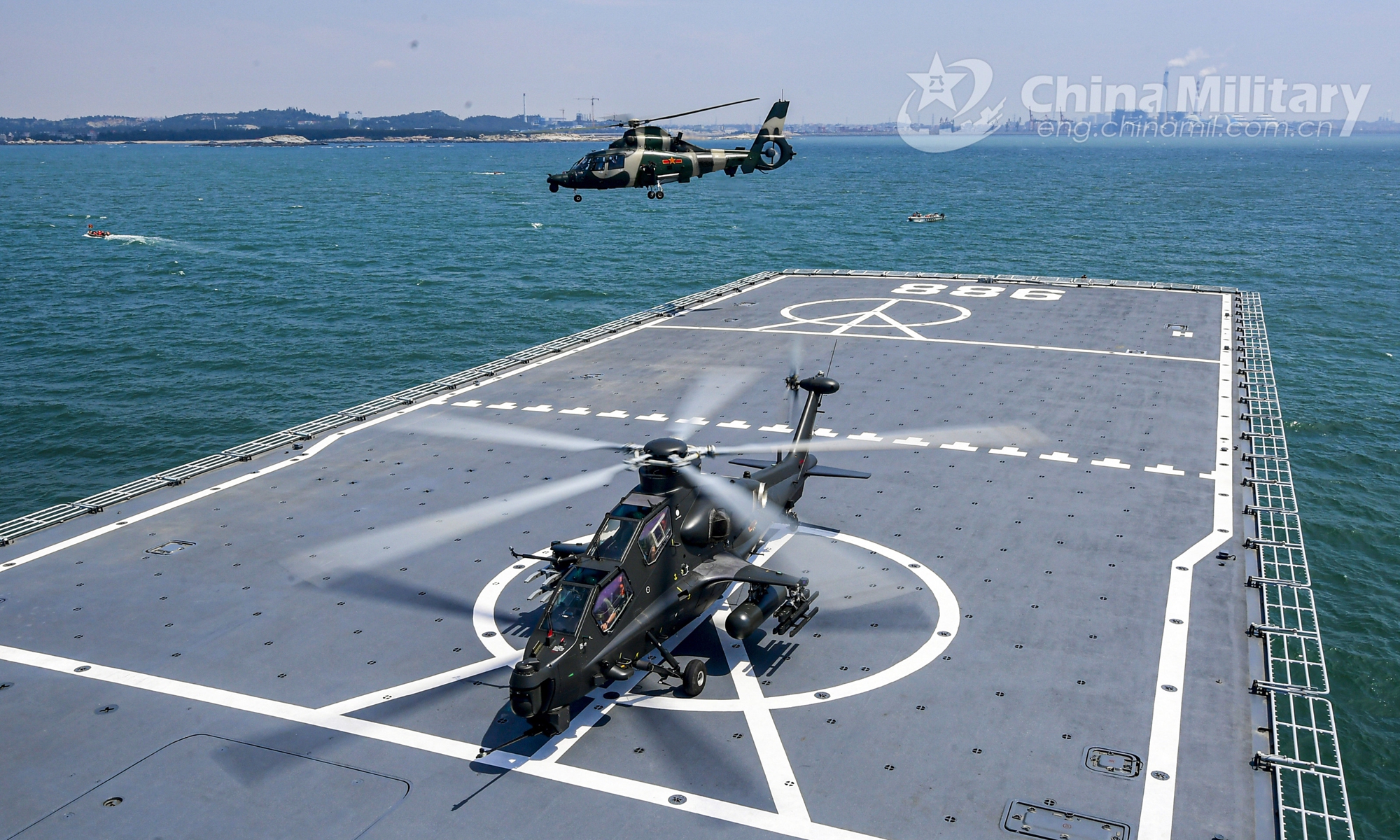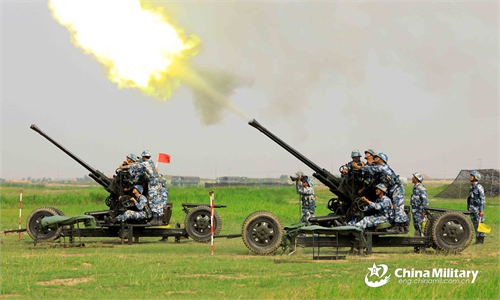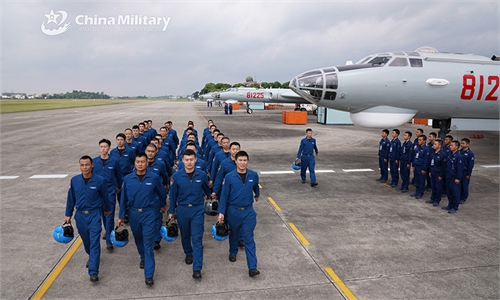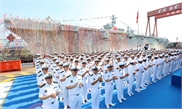
A Z-9 attack helicopter and a WZ-10 attack helicopter assigned to an army aviation brigade under the PLA 73rd Group Army lift off from the flight deck of the dock landing ship Yimengshan (Hull 988) successively during an inter-Services maritime coordinated training exercise with the PLA Navy at an undisclosed sea area on August 3, 2020. (eng.chinamil.com.cn/Photo by Li Shilong)
The island of Taiwan is reportedly in discussions with the US over the purchase of cruise missiles and sea mines, and claimed they will potentially be deployed as coastal defense and amphibious landing deterrence. The intention to purchase these weapons only emphasized Taiwan's outdated war concepts and military technologies, and their potential deployment can be easily countered by the People's Liberation Army (PLA), Chinese mainland experts said on Thursday.
Taiwan is working with the US on acquiring a number of hardware capabilities, including cruise missiles that would work in conjunction with the island's indigenous Hsiung Feng missile system to provide better coastal defense, and underwater sea mines and other capabilities to deter amphibious landing, or immediate attack, said Hsiao Bi-khim, the island's representative to the US, at Washington's Hudson Institute think tank on Wednesday, Reuters reported on Thursday.
Hsiao claimed that the island of Taiwan needs to expand its asymmetric capabilities to bring about deterrence against the Chinese mainland.
However, mainland military experts said the weapons pose no threat to the PLA, as they can be easily countered.
Lockdown via sea mines is an outdated tactic from World War II, and the PLA has long gained the capability to sweep sea mines and open green passages, Song Zhongping, a Chinese mainland military expert and TV commentator, told the Global Times on Thursday.
The PLA troops can also carry out aircraft vertical landing, which will allow them to avoid the sea mines, Song said, noting that the deployment of sea mines will only isolate the island from the rest of the world but will not be able to stop a potential amphibious landing by the PLA.
Taiwan has its own indigenous cruise missile, but the intention to purchase US ones showed the island is still fully reliant on the US for advanced technologies, Song said.
These types of cruise missiles are only of high subsonic speed, and follow a relatively fixed flight trajectory, Song said, noting that the PLA has a wide selection of tools it can use to intercept them.
In May, media reports said the island also wants to buy Harpoon anti-ship missiles from the US, and US-made SeaGuardian surveillance drones are also on the wish list, media revealed earlier this month. In May, the US confirmed it had approved the sales of 18 heavyweight torpedoes to Taiwan.
In response to the reported drone deal, Chinese Foreign Ministry spokesperson Wang Wenbin said at a routine press conference on August 7 that US arms sales to Taiwan island severely undermine China's sovereignty and security interests, and gravely violate basic norms of international relations.




